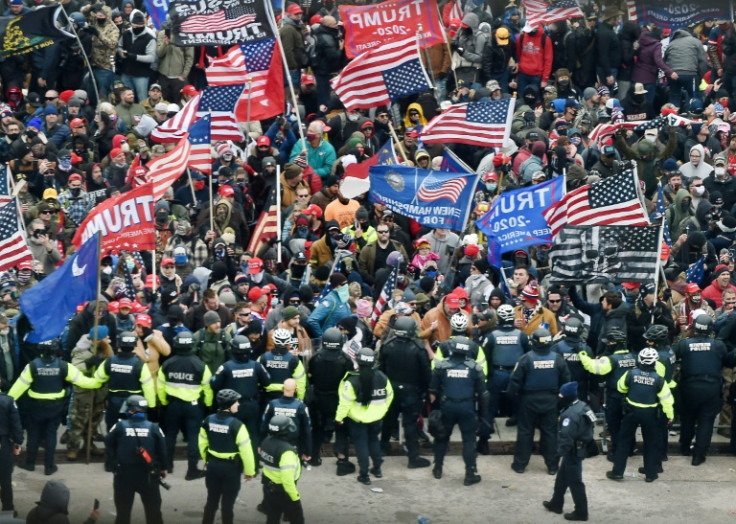Supreme Court Divided Over Broad Application Of Federal Law In Capitol Riot Cases

The Supreme Court seemed sharply divided on Tuesday on whether prosecutors overextended federal law in charging numerous individuals involved in the Jan. 6, 2021, assault on the Capitol.
Some justices expressed concerns that prosecutors' expansive interpretation of a financial crimes statute could be used against political demonstrations.
The decision could have ramifications for those involved in the riot and potentially affect former President Donald Trump's trial for election interference in Washington, D.C., according to The Washington Post.
The court was hearing the case of former Pennsylvania police officer Joseph Fischer, who is facing charges related to his alleged actions during the Capitol events in 2021.
The court's ruling could potentially unwind the convictions and sentences of more than 100 individuals who have either pleaded guilty or been convicted under the statute. It could potentially nullify two of the four charges against Trump, as brought by special counsel Jack Smith.
The central question revolves around the applicability of the Sarbanes-Oxley Act of 2002 in Fischer's case. The legislation, implemented following the Enron financial scandal to curb evidence destruction in financial crimes, is being scrutinized for its use against individuals involved in the events of January 6, 2021.
The statute criminalizes actions such as altering, destroying, mutilating, or concealing records or documents to hinder an investigation. It also includes a broader provision targeting conduct that "otherwise obstructs, influences, or impedes any official proceeding."
Fischer's defense attorney, Jeffrey Green, contended that this provision should not be applicable to his client. But Elizabeth Prelogar, the Solicitor General of the Biden administration, argued that the text of the statute was unequivocal and that Congress had intended for it to be broad-reaching.
The Supreme Court's three liberal justices seemed to incline toward a straightforward interpretation of the statute, suggesting that most, if not all, of the charges could remain valid.
However, the court's conservative members, who make up a majority on the nine-member bench, appeared more doubtful, saying the absence of prosecutions under the same law for matters unrelated to financial or documentary crimes. Chief Justice John Roberts suggested that the obstruction language in the law should be examined in context.
Some justices, like Neil M. Gorsuch and Samuel A. Alito Jr., voiced concerns using hypothetical situations, suggesting that granting prosecutors extensive authority could enable the government to target peaceful demonstrators, disruptive hecklers, or individuals who pull a fire alarm to postpone a vote in Congress.
Fischer attended the "Save America" rally on Jan. 6 and now faces prosecution for purportedly joining the crowd that breached the Capitol while Congress was certifying the 2020 election results.
The statute could lead to a maximum sentence of 20 years, but many Jan. 6 defendants have received lighter penalties, along with being charged with other associated offenses.
© Copyright IBTimes 2025. All rights reserved.





















